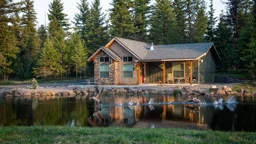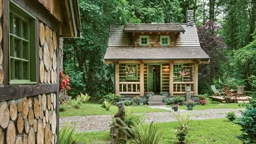1. Plan ahead, way ahead. Make your plans with these main goals: reducing or eliminating capital gains taxes and probate costs, and providing for an orderly succession.
2. Have a full and frank discussion with your children before making estate plans involving the cottage. Make sure your kids actually want the cottage before deciding to leave it to them.
3. Consult a lawyer and/or tax professional with expertise in estate planning before considering any bequest strategy, especially a gift of property while still living. Simply giving the cottage to the kids now can pack a nasty surprise in capital gains taxes.
4. Rather than leaving each of your children an equal share of the property, consider leaving it to one (or two) and assets of comparable value to the other(s). One child may love the cottage, another may have little interest in it. Treating heirs equally doesn’t necessarily mean giving them an equal share of the property.
5. Work out the details before the kids take over. While you’re still around to assist and mediate, have them prepare a co-ownership agreement that addresses potential areas of conflict, such as who gets to use the place when and how costs will be shared.
6. Consider setting up a trust device within your estate to cover the cottage’s ongoing operating costs for your beneficiaries. If your children have different income levels and financial responsibilities, this can help ensure smooth co-ownership in the next generation.
7. Keep careful track of your cottage expenditures from the get-go. The cost of improvements can be used to offset capital gains when you hand down the cottage.
8. If you choose to begin transferring ownership within your lifetime, understand the important legal differences between property owned jointly and in-common. And protect yourself from loss of control of the property with a life interest.
9. Consider a living trust instead of a simple bequest. Among other advantages, a cottage in a living trust avoids the time-consuming and potentially expensive process of probate.
For one man’s solution, see “Cabinitis: The State of My Estate” .
 Kati Neudert, dreamstime.com
Kati Neudert, dreamstime.com 









